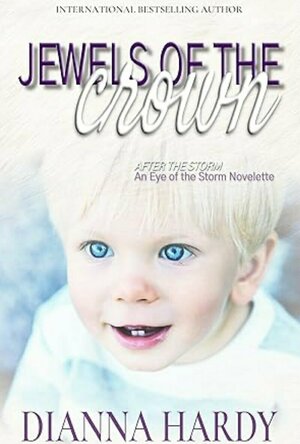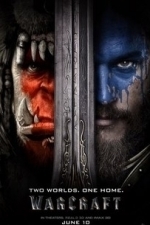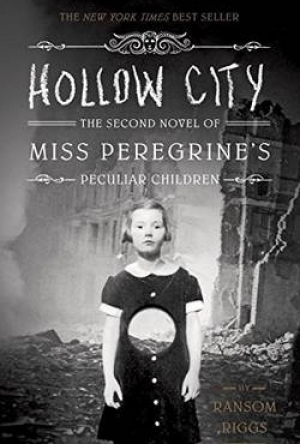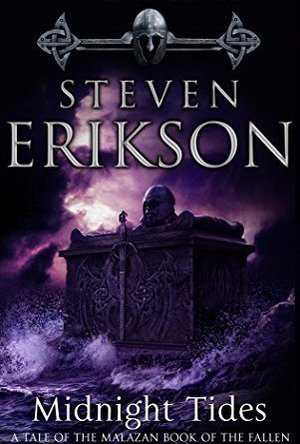
Midnight Tides
Book
The fifth awesome tale in Erikson's epic Malazan Book of the Fallen fantasy sequence After...
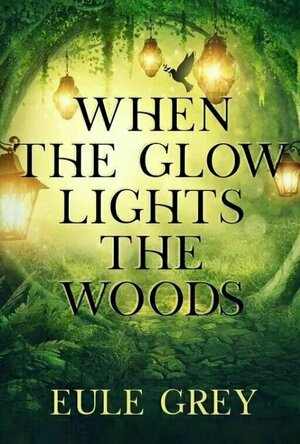
When the Glow Lights the Woods
Book
A snowy story of healing, birds, and the magic of connection. The Wall? Who gives a snowman’s...
Post-Apocaplytic MM Romance Seasonal
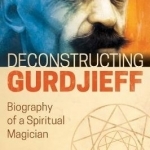
Deconstructing Gurdjieff: Biography of a Spiritual Magician
Book
In November 1949, architect Frank Lloyd Wright announced the death of "the greatest man in the...
ClareR (6054 KP) rated Jewels of the Crown in Books
Nov 23, 2025 (Updated Nov 23, 2025)
Each novelette has centred around one of the four main characters, and Jewels is all about Lawrence, the King of the werewolves, and a rather large secret that he has been keeping form his mates.
I loved finding out about how the mates are settling in to parenthood and their new lives - and the children seemed to be as mischievous as many children are! One or two also seem to have a trick or two tucked up their sleeves - which I’m sure will come out further in subsequent novels (I hope!).
I’ve been trying to work out why I like these books by Dianna Hardy so much, and I think I’ve come up with one or two reasons. I really enjoy the writing style and how we get to see what the characters are thinking “in their own words”; of course, there’s the fantastical element of werewolves and magic that relates back to my love of fairy tales, myth and legend; and then there’s the found family. This theme has snuck up on me over the years, but I seem to read a lot of books where the main characters find the people that they want to call their family, and these aren’t the people that they necessarily grew up with. And Dianna’s books do this so well.
If this sounds like something you’d like to read, I should say that there’s a touch of spice in these books, too, but if that’s likely to be a deal breaker, I wouldn’t let it put you off. There’s so much going on in such a short space of a novelette besides the sex (and it’s all in context - not gratuitous).
I look forward to every book that Dianna publishes, and I feel very lucky to have received the ARC of this book.
All opinions are, of course, my own.
RəX Regent (349 KP) rated Warcraft (2016) in Movies
Feb 19, 2019
But derivative is the word. The game was designed to allow its players to interact with each over and across the internet and essentially play in scenarios which span the fantasy genre, itself drawing from such classics as Lord Of the Rings, Dungeons and Dragons and every medieval or ancient myth imaginable.
As a game, this sounds like fun, taking on roles and pretending to be mythological characters, wielding swords and magic, but since this was already taken wholesale from the genre, including films, what was the point?
Essentially, what we have is an epic mash up of films which have already made there mark whilst offering little if anything new worth talking about. The plot twists are predicable if not hammy, the characterisations are dull and cliched and in the end there is little to offer but a brand name and endless special effects.
The movie does pick up a bit in the third act but even this is let down with a finale of world building and sequel teasing, with the plot left wide open and several plot lines ready to go if there was ever to be a Warcraft 2. The problem is that there is little to tantalise unless you are already a die hard fan. The writing is poor, effective for driving the plot along at some pace but it is mundane, predictable and lacking any real intrigue or interest. It simply goes through the motions as does almost everything and everyone else in the film as a whole.
I want to say that it could have been better, but I can not. I think that Jones and his team have probably done a reasonable job of adapting this game but that is what it is, a derivative PC game and hardly suitable for a movie of this scale.
When will they learn?
Goddess in the Stacks (553 KP) rated Crimson Bound in Books
Apr 30, 2018
In Rachelle's world, The Forest is the dominating theme - it encroaches on villages and towns, sending "woodspawn" to attack people, and Forestborn to turn more humans into bloodbound and ultimately Forestborn. Humans are sheep to The Forest; prey to the Forestborn. Once a Forestborn has marked a human, they have three days to kill someone or they will die. If they kill someone, they become bloodbound - an intermediary step before they become completely Forestborn. Bloodbound have increased strength, resilience, and fighting skills, so the King has extended an offer to Bloodbound - even though they are known murderers, since they had to have killed someone to gain their powers - he will grant them clemency in exchange for their service to the realm. Guard the people from the woodspawn, the mindless monsters the Forest sends to attack people, and he'll let you live.
So Rachelle is a Bloodbound, bound to the King. Unlike most, though, she still believes in some of the old pagan stories about The Forest and the Devourer - the ancient evil driving the Forest's predatory ways. The book is about her quest to stop it from coming through into their world and destroying everything. There are twists and reveals that I cannot mention here, but it is an AMAZING piece of world-building and myth and I LOVED IT.
I also discovered she has several short stories post on her website so I'll be binge-reading those for a while!
This book - and anything by Rosamund Hodge - is pure magic. If you like dark fairy tales, you can't do better than this.
You can find all my reviews at http://goddessinthestacks.wordpress.com
Becs (244 KP) rated Hollow City: The Second Novel of Miss Peregrine's Children in Books
Oct 2, 2019
Synopsis: September 3, 1940. Ten peculiar children flee an army of deadly monsters. And only one person can help them—but she’s trapped in the body of a bird. The extraordinary journey that began in Miss Peregrine’s Home for Peculiar Children continues as Jacob Portman and his newfound friends journey to London, the peculiar capital of the world. There, they hope to find a cure for their beloved headmistress, Miss Peregrine. But in this war-torn city, hideous surprises lurk around every corner. And before Jacob can deliver the peculiar children to safety, he must make an important decision about his love for Emma Bloom.
Genre: Fantasy, Young Adult, Paranormal, Fiction
Audience/Reading Level: Middle School+
Interests: Fantasy, Young Adult, Paranormal
Style: Light Read
Point of View: Third Person
Difficulty Reading: It was a very easy read and know even younger individuals will be able to understand what the underlying meaning of the story is.
Promise: Like its predecessor, this second novel in the Peculiar Children series blends thrilling fantasy with newly discovered (and thoroughly mesmerizing) vintage photography to create a one-of-a-kind reading experience that will delight readers of all ages.
Quality: Like your favorite cake with extra whip cream and ice cream. 😉
Insights: When I first read this series, I read Tales of the Peculiar by Ransom Riggs first to get a better understanding of the characters since I had a feeling that there was going to be a lot of references to it. I was right. I honestly fell in love with this series and love the way that Ransom Riggs writes. It just captures my attention and transports me into a world of fantasy that is a great escape from reality!
Favorite Quotes: “Laughing doesn’t make bad things worse any more than crying makes them better.”
“There was romance in the unknown, but once a place had been discovered and cataloged and mapped, it was diminished, just another dusty fact in a book, sapped of mystery. So maybe it was better to leave a few spots on the map blank. To let the world keep a little of its magic, rather than forcing it to divulge every last secret. Maybe it was better, now and then, to wonder.”
What will you gain: A love of a new fantasy world that will make you wish, you too were a part of the Peculiar children’s world.
Aesthetics: I absolutely love the vintage style this series has. The photographs help give an idea of who and what the characters look like. The way that Ransom Riggs writes, just draws anybody of any age into the plot and storyline, like an enchantment that takes you from the real world, into a world filled with magic, hope, love, and adventure.
“Some truths are expressed best in the form of myth.”
Eilidh G Clark (177 KP) rated A Portable Shelter in Books
May 13, 2017
Kirsty Logan’s first collection of short stories, The Rental Heart and Other Fairytales, published by Salt in 2014, won the Polari First Book Prize in 2015. A Portable Shelter is her second collection. Set in a small cottage in the rural north coast of Scotland, Ruth and Liska are expecting their first child. The couple believe that their unborn baby will have a better chance of survival away from the harshness of suburban life. They make a pact with one another, that they will only ever tell their child the truth. Yet while Liska is asleep or Ruth is at work, each whispers secret stories to their unborn child. Delving into fantastical tales about people from their past and re-telling stories that span from generation to generation, the couple unfold the horrors of the real world. Whilst these tales, laced in myth and legend, and fattened with the magic of the imagination, demonstrate the art of oral storytelling, Logan reaches further to show the reader why storytelling is important.
While this book is primarily a collection of short stories, its novel like structure frames each story with a preceding monologue from either Ruth or Liska. The monologues offer delightful morsels of description that bring the harshness of Mother Nature into the safety of the couple’s bedroom, “right now our home is speaking to you. The walls creak their approval in the wind. The rain applauds on the roof. The lighthouse beam swoops, swoops, swoops. The tide breathes loud and slow like a giant. If you listen carefully, perhaps you can even hear the moon hum.” The pace of these sentences, combined with the delicacy of language demonstrates Logan’s skill at describing the sublime spirit of the natural world, which brings the narrative to life.
Most impressive though, is Logan’s poetic language and carefully crafted sentences which create the most beautiful imagery. In ‘Flinch,’ for example – James is a fisherman struggling with his identity, yet his affiliation with the land is locked into his first-person point of view where the reader gets to closely experience what he sees, “The sky is pinkish-grey like the insides of shells. Speckled bonxies wheel overhead. Seals loll on the rocks, fat as kings. The rising mist is cool and milky.” Any of these lines could easily be arranged into a poem and with sentences that are squeezed tight; they create a wonderful poetic rhythm. Logan uses this technique throughout her novel, demonstrating the precision and craft in her work. There are definite similarities in her writing style to fellow Scottish novelist and poet Jenni Fagan. Both authors use rich language, which is well crafted and smattered with vernacular. Furthermore, combining this with the reoccurring theme of identity, the oral storytelling tradition, landscape, folklore, and myth, it is clear to see why these authors contribute to the growing canon in Scottish literature.
This is a book that I will read over and over again because I know that in each reading, I will find something new. A Portable Shelter, I feel, deserves a place on my ‘keep’ book shelf.
A Portable Shelter, Kirsty Logan, London: Vintage, 2015

Tibetan Quest: Beyond the World's End (Full)
Games and Stickers
App
"Beautiful landscapes of the Orient" - AllAboutCasualGame.com "A thrilling hidden object game"...

Tibetan Quest: Beyond the World's End
Games and Stickers
App
"Beautiful landscapes of the Orient" - AllAboutCasualGame.com "A thrilling hidden object game"...
